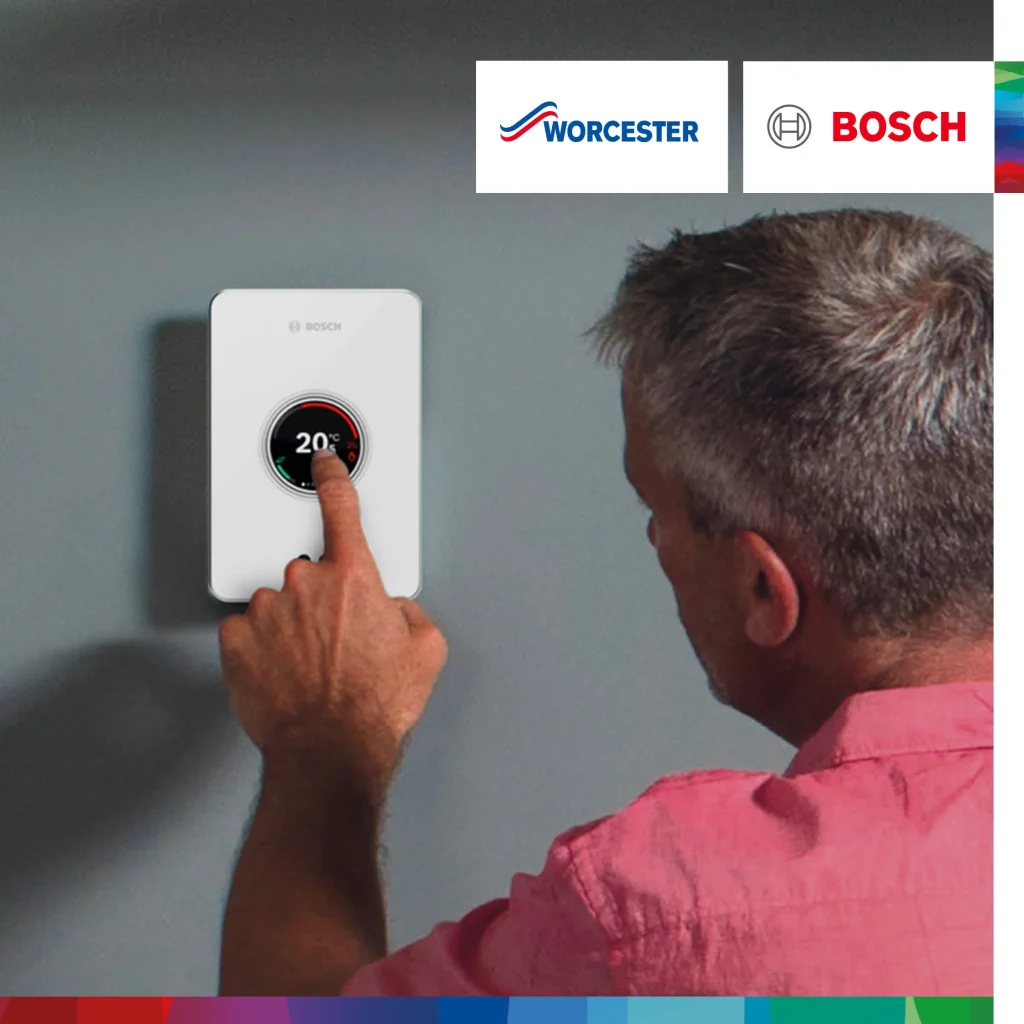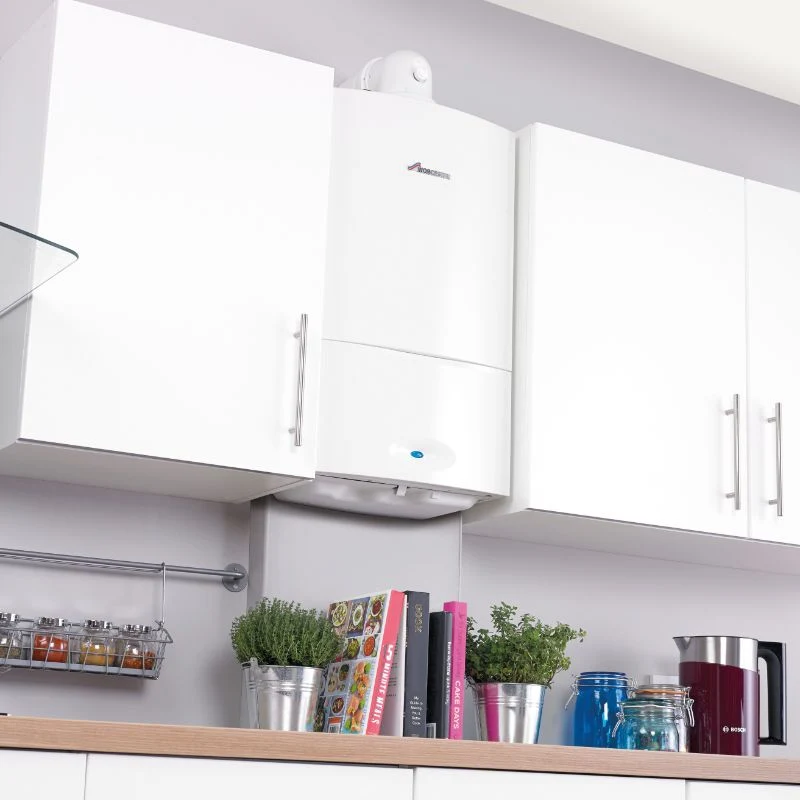HVAC, short for Heating, Ventilation, and Air Conditioning, plays a crucial role in maintaining comfortable and healthy indoor environments. Whether you’re a homeowner, a business owner, or simply curious about this ubiquitous system, understanding what HVAC is and how it operates is essential knowledge.
In this article, we will delve into the fundamental principles behind HVAC, exploring its various components, functions, and benefits.
What Does HVAC Stand For?
HVAC stands for Heating, Ventilation, and Air Conditioning. It refers to the various systems, machines, and technologies used to control the temperature, humidity, and air quality in indoor environments, providing comfort and improving indoor air quality.
Read about: Draining your central heating system
Definition of HVAC
- Heating
- Ventilation
- Air Conditioning
Components of an HVAC System
An HVAC system consists of several components that work together in order to regulate the indoor climate.
Heating Unit
A heating unit can consist of a furnace or a heat pump.
Furnace
Burns fuel (such as oil or gas) to produce heat.
Heat pump
A heat pump can transfer heat from one place to another, typically from the outside air or ground into the home.
Ventilation
Ductwork
Ducts can distribute the conditioned air throughout the building.
Ventilation Fans
They can move air in and out of the building in order to ensure proper airflow and indoor air quality.
Air Filters
Filters can remove particulates and contaminants from the air.
Read about: The Ultimate Guide to Heat Pumps for 2024
Air Conditioning Unit
Evaporator Coil
An evaporator coil absorbs heat from the indoor air.
Condenser Coil
It can release absorbed heat outside.
Compressor
A compressor circulates refrigerant between the evaporator and condenser coils.
Expansion Valve
It can regulate the flow of refrigerant into the evaporator coil.
Thermostat
A thermostat can control the operation of the HVAC system by setting the desired temperature.
Refrigerant
This is a fluid that is used in the refrigeration cycle of air conditioning systems to absorb and release heat.
Blower Motor and Fan
These are used to distribute heated or cooled air through the ductwork.
Dampers
Dampers can regulate airflow within the ductwork to ensure balanced heating and cooling throughout the building.
Humidity Control
Humidifiers
Humidifiers add moisture to the air.
Dehumidifiers
As for Dehumidifiers, they can remove excess moisture from the air.
Read more about:
How does my central heating work?
Expert Underfloor Heating Installation Services

How HVAC Systems Work?
An HVAC system controls indoor climate by heating, cooling, and ventilating air. Firstly, the heating component uses a heat pump or a furnace to warm air, distributing it through ducts. The air conditioning system cools air via a refrigeration cycle, with the evaporator coil absorbing heat and the condenser coil releasing it outside.
Ventilation involves fans and ducts circulating fresh air, removing stale air, and filtering contaminants. A thermostat regulates the system in order to maintain the desired temperature. What is more, humidity levels are adjusted with humidifiers and dehumidifiers to make sure that your system is providing comfort and air quality.
Read more about: Air Conditioning Guide
Types of HVAC Systems
There are several types of HVAC systems, each designed to meet different heating, cooling, and ventilation needs.
Split Systems
A split system consists of An outdoor unit (condenser and compressor) and an indoor unit (evaporator coil and air handler). It is commonly used in Common in residential homes; provides both heating and cooling
Pros:
- Efficient
- Customizable
- Easy to install
Cons:
- Requires ductwork
Hybrid Split Systems
This system is similar to traditional split systems but includes a heat pump and a furnace. It offers a more energy-efficient option for heating by switching between electricity and fossil fuels.
Pros:
- Energy-efficient
- Flexible
cons:
- Higher initial cost
Ductless Mini-Split Systems
A Ductless Mini-Split System consists of an outdoor unit and one or more indoor units mounted on walls. It is perfect for homes without ductwork or for adding climate control to specific rooms.
Pros:
- No ductwork required
- Highly efficient
- zoned heating and cooling
Cons:
- Higher upfront cost
- Visible indoor units.
Packaged Systems
In this system all components are housed in a single outdoor unit. It is commonly in small commercial buildings and homes with limited indoor space.
Pros:
- Space-saving
- Easy to maintain
Cons:
- Less efficient than split systems
- Might be noisier.
Geothermal HVAC Systems
It consists of an underground loop system (for heat exchange) and indoor handling unit. A Geothermal HVAC System uses the earth’s stable temperature for heating and cooling.
Pros:
- Highly energy-efficient
- Environmentally friendly
Cons:
- High installation cost
- Requires significant land
Heat Pumps
Read about: Types Of Commercial Air Conditioning In Uk
Whether it is an air unit or an underground unit, they include an outdoor unit and indoor air handler. Heat pumps can transfer heat between indoors and outdoors for both heating and cooling.
Pros:
- Energy-efficient
- Dual-purpose
Cons:
- Less effective in extremely cold climates.
Central Air Conditioning Systems
This unit consists of a central air conditioner connected to a duct system. It can provide cooling throughout the entire building.
Pros:
- Efficient
- Whole-home cooling
Cons:
- Requires ductwork
- Higher installation cost
Zoned HVAC Systems
This unit can be added to existing systems. They use dampers in ductwork and individual thermostats. They Allow different areas (zones) of a building to be heated or cooled independently.
Pros:
- Increased comfort
- Energy savings
Cons:
- More complex system
- Higher cost
Read about: best Office Air Conditioning & Installation in uk

Maintenance and Troubleshooting of HVAC Systems
Proper maintenance and troubleshooting of HVAC systems are crucial for ensuring efficiency, longevity, and comfort.
Regular Inspections
Have your system checked annually to identify potential problems and present them.
Filter Replacement
Air filters should be replaced every 1-3 months to maintain air quality and system efficiency.
Clean Coils
The evaporator and condenser coils should be cleaned to prevent dirt buildup, which can reduce efficiency.
Check Thermostat
Make sure that your thermostat is functioning correctly and set to the desired temperature.
Ductwork Inspection
Check for leaks or obstructions in the ductwork and seal any gaps in order to improve airflow and efficiency.
Clear Surrounding Areas
It is recommended to keep the area around outdoor units free of debris, plants, and other obstructions to ensure proper airflow.
Lubricate Moving Parts
Lubricate motors and other moving parts to reduce wear and friction.
Check Refrigerant Levels
Ensuring that refrigerant levels are adequate and there are no leaks in the system is quite important as well.
Inspect Electrical Connections
To prevent electrical failures, electrical connections should be checked and tightened.
Test System Controls
Test the starting cycle, operation, and shut-off sequence of the system to ensure everything is functioning properly.
Troubleshooting
1. System Not Turning On
- Check Thermostat: Ensure it’s set correctly and has working batteries.
- Inspect Circuit Breaker: Reset if tripped.
- Check Power Supply: Ensure the system is plugged in and receiving power.
2. Insufficient Heating or Cooling:
- Replace Filter: A dirty filter can restrict airflow.
- Check Thermostat Settings: Ensure settings are correct.
- Inspect Coils: Clean if dirty.
- Check Refrigerant Levels: Low refrigerant can affect cooling.
3. Unusual Noises:
- Check for Loose Parts: Tighten any loose screws or bolts.
- Inspect Fan Blades: Ensure they are not bent or obstructed.
- Lubricate Motor: Lubricate if necessary.
4. Weak Airflow:
- Inspect Ductwork: Check for leaks or blockages.
- Clean or Replace Filters: Dirty filters can restrict airflow.
- Check Blower Motor: Ensure it is functioning correctly.
5. Frequent Cycling:
- Check Thermostat Placement: Ensure it’s not near heat sources or drafts.
- Clean Coils: Dirty coils can cause short cycling.
- Inspect Refrigerant Levels: Low levels can cause the system to cycle frequently.
6. Water Leaks:
- Clear Condensate Drain: Ensure it’s not clogged.
- Check for Refrigerant Leaks: Low refrigerant can cause icing and water leaks.
7. High Energy Bills:
- Inspect System Efficiency: Ensure the system is operating efficiently.
- Seal Leaks: Check for and seal any ductwork or insulation leaks.
- Upgrade to a Programmable Thermostat: Helps optimize energy use.
In conclusion, the primary purpose of an HVAC system is to create a comfortable, healthy, and energy-efficient indoor environment by effectively managing heating, ventilation, and air conditioning.
Read more about:
Best Wall Mounted Air Conditioning Systems Brands in uk
FAQs
1- What is the difference between AC and HVAC?
AC systems are a component of HVAC systems dedicated to cooling. HVAC systems provide a full range of climate control services, including heating and ventilation.
2- What is HVAC in engineering?
In engineering, HVAC (Heating, Ventilation, and Air Conditioning) refers to the technology and systems used to provide thermal comfort and acceptable indoor air quality in buildings and other structures. HVAC engineering involves the design, installation, operation, and maintenance of these systems to ensure efficient and effective environmental control
3- What is the main purpose of the HVAC system?
The main purpose of an HVAC (Heating, Ventilation, and Air Conditioning) system is to provide a comfortable and healthy indoor environment

























